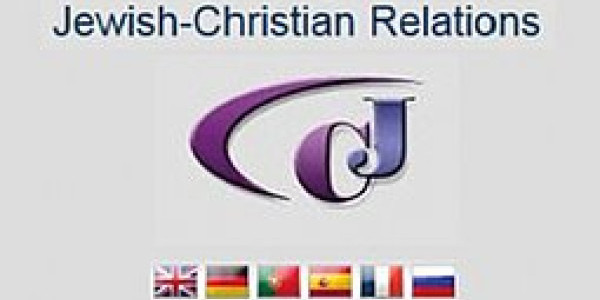Communique of the 6th Academic Meeting between Judaism and Orthodox Christianity Jerusalem, March 14-15, 2007
The Sixth Academic Meeting between Judaism and Orthodox Christianity on "Religious Liberty and the Relationship Between Freedom and Religion"
15/03/2007 | Na stronie od 15/03/2007

The Sixth Academic Meeting between Judaism and Orthodox Christianity on "Religious Liberty and the Relationship Between Freedom and Religion" took place from March 14-15, 2007, in the Jurisdiction of the Greek Orthodox Patriarchate of Jerusalem and held at the Van Leer Institute. The meeting was also made possible with the generous support of the Sapir Center for Jewish Education and Culture and of the Archons of the Order of St. Andrew, Ecumenical Patriarchate. The meeting was co-chaired by Chief Rabbi David Rosen, President of the International Jewish Committee on Interreligious Consultations and His Eminence Metropolitan Emmanuel of France, who heads the office of Interreligious and Intercultural Affairs to the Liaison Office of the Ecumenical Patriarchate to the European Union, Brussels.
The opening of the meeting began with the reading of a message from His All Holiness the Ecumenical Patriarch Bartholomew I, and the meeting was honored by the presence of His Beatitude Patriarch Theophilos III of Jerusalem and Chief Rabbi of the State of Israel, Rabbi Yonah Metzger. Patriarch Theophilos III also presented his message at the opening session and hosted a reception at the Patriarchate.
Greek government officials who sent their greetings to the participants included Her Excellency Mrs. Dora Bakogiannis, Minister of Foreign Affairs and His Excellency Mr. Thodoris Roussopoulos, Minister of State and Government Spokesman. Greetings were also delivered by Mr. Andrew Athens, Honorary President of the World Council of Hellenes and Archon of the Ecumenical Patriarchate. Chief Rabbi Rosen opened with welcoming remarks followed by the introductory address of Metropolitan Emmanuel of France.
Forty delegates were present at the meeting representing Judaism and Orthodoxy. Among the observers were representatives from the Vatican as well as the Ecumenical Theological Research Fraternity in Israel.
The subject of the first session was "Religious Freedom and Law in our Sources." Presentations were made by Chief Rabbi Mordechai Piron, Chairman of the Sapir Center for Jewish Education and Culture in Jerusalem and Professor Vlassios Phidas of the University of Athens, representing the Ecumenical Patriarchate. The presentations of the second session, on "Faithfulness to a Religious Identity in the Modern World," were delivered by Rabbi Dr. Richard Hirsch, President of the World Union of Progressive Judaism in Jerusalem and Reverend Professor Thomas Fitzgerald, Dean of the Holy Cross Greek Orthodox School of Theology in Brookline, MA, representing the Ecumenical Patriarchate. Papers for the third session on "Addressing the Challenges from Concrete Contexts," were presented by Rabbi Dr. Richard Marker of New York and Reverend Dr. Sergey Hovorun of the Department for External Church Relations of the Patriarchate of Moscow.
The following principles were affirmed by the consultation:
-
The principle of religious freedom is a fundamental right that flows from our mutual biblical affirmation that all human beings are created in the image of God (Gen. 1:26-27). Freedom is a divine gift and religious value and as such must be respected and protected.
-
Because freedom enables us to choose between good and evil, the gift of freedom requires the exercise of responsibility. The manner in which we express our responsibility, profoundly affects human dignity and wider contexts in which the person lives: family, community, nation and humanity. We are, therefore, endowed with an ethical responsibility to pursue righteousness, and to confront evil wherever we find it. Personal freedom, morality and responsibility are all interconnected.
-
Freedom of religion, freedom of conscience for all individuals and freedom to exercise one's worship and practices at the national, regional and international levels must be guaranteed. Otherwise, societies fail to respect the inviolable rights of persons of diverse religions as well as of those of no religion at all.
-
Religious communities are entitled to defend their own authentic religious identities against attempts to undermine them.
-
The preeminent value of the human person obliges us to respect all forms of religious and secular expression, as long as they do not infringe upon or threaten the security and religious freedom of individuals, communities and societies. Conversely, where militant secularism and religious extremism pose such a threat, they must be repudiated and combated.
Following on from the above principles, we call upon governments to recognize the important role of religion within their states and broader society, and to implement the above-listed principles in all state legislation impacting religious practice and expression.